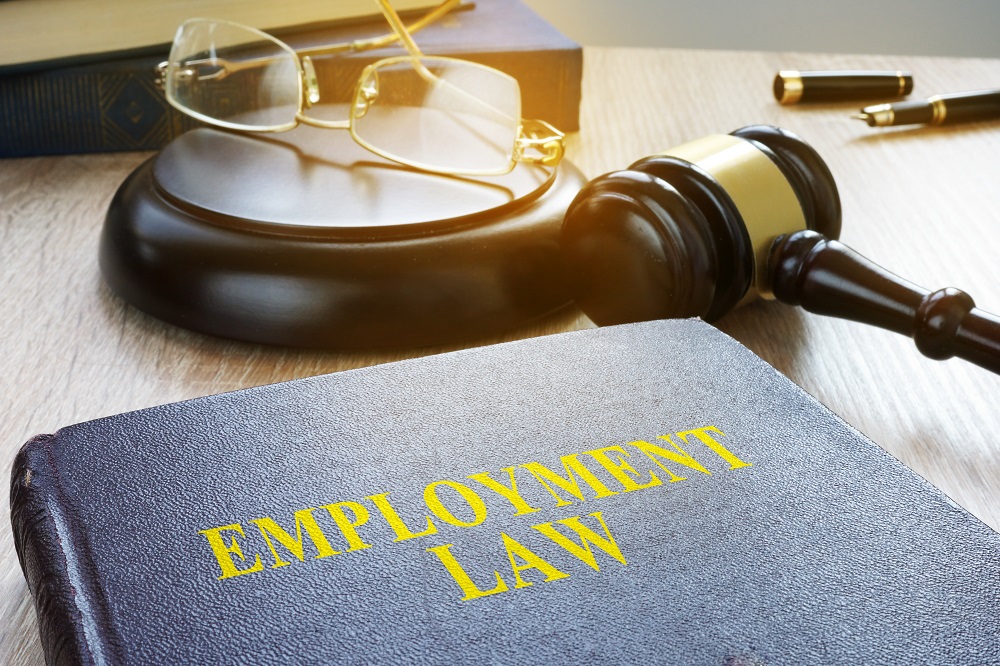The modern workplace is quite complex, so a decent understanding of employment law is important for both employers and employees to protect themselves legally. These laws are designed to promote a safe, productive work environment for all by making sure everyone is treated fairly and that their rights are protected. Adhering to these laws reduces legal risks and maintains a positive culture in the organization for employers. On the other hand, employees knowing these laws can fight to be treated fairly and seek legal recourse when they experience things like discrimination in the workplace.
This article will answer some important employment law questions and common concerns. Key elements of employment law include harassment and discrimination in the workplace, wage and hour regulations, safety in the workplace and FMLA rights. Read on for insights into relevant laws, practical employment law examples, and guidance for both employers and employees to effectively navigate the complicated world of employment law.
With this clarity and understanding, employers and employees have the knowledge they need to make informed decisions and take appropriate actions in their workplaces. Regardless of if you’re an employer looking to maintain adherence to employment law, or an employee seeking to understand your rights, this post will serve as a valuable resource in navigating the complex world of employment law.
Discrimination and Harassment
Discrimination and harassment in the workplace are significant challenges, impacting individuals based on protected characteristics such as race, gender, age, and disability. Understanding these forms of discrimination is crucial for fostering a fair and inclusive work environment.
Discrimination is defined as unfair treatment because of someone’s membership of a protected class. There are several kinds of discrimination in the workplace, all of which are prohibited by employment law. These types include:
- Race Discrimination: Treating someone unfavorably because of their race or racial features.
- Gender Discrimination: Discriminating based on someone’s gender identity or stereotypes related to gender roles.
- Age Discrimination: Treating someone unfavorably because of how old they are, typically affecting older individuals, but this can go both ways.
- Disability Discrimination: Unfair treatment of people with disabilities, such as failing to provide reasonable accommodations.
Handling discrimination in the workplace usually involves identifying patterns of unfair treatment, disproportional opportunities, or hostile work environments based on the protected traits listed above. Addressing discrimination complaints should involve a clear and fair process:
- Internal Reporting: Employees should be encouraged to report discrimination to designated HR personnel or supervisors.
- Investigation: Any complaints of discrimination in the workplace should be investigated quickly and thoroughly to determine the truthfulness of the complaint.
- Resolution: If the complaints are valid, actions like disciplinary measures, training, or policy changes should be taken.
Wage and Hour Laws
Both employers and employees should have a clear understanding of wage and hour laws for fair compensation practices in the workplace. For starters, minimum wage laws designate the lowest hourly rate that employees must be legally paid by their employers. Federally, the Fair Labor Standards Act (FLSA) determines the minimum wage, but states can have their own minimum wage laws higher than the federal one. It’s mandatory for employers to adhere to these laws in order to avoid legal issues and compensate employees properly for their work.
Non-exempt employees who work more than 40 hours in a workweek are also entitled to overtime pay. According to the FLSA, overtime rates must be at least one and a half times their regular hourly rate. Specific state laws can add extra protections or stricter requirements for overtime pay. Due to these regulations, employers must accurately track hours worked and pay overtime wages in a timely manner.
The Department of Labor (DOL) identifies common violations of wage and hour laws, some of the most common being misclassifying employees as exempt from overtime pay or failing to pay overtime wages. Employers should make sure they’re classifying their employees accurately, keeping detailed payroll records, and implementing clear overtime eligibility policies. Any violations should be dealt with promptly and transparently to both reduce legal risks and also foster trust and compliance with employees, which goes a long way toward a fair, healthy work environment.
Workplace Safety and Health
Making sure everyone is safe and healthy is an important part of employment law for both employers and employees to keep a productive and secure workplace. Employers must adhere to standards designated by Occupational Safety and Health Administration (OSHA) to keep their workplace safe. Potential hazards should be identified and mitigated, safety training should be conducted regularly, and accurate records of injuries and illnesses should be maintained. There are also specific industry regulations that employers must adhere to in order to protect employees and ensure adherence to federal safety guidelines.
A safe and healthy work environment is something all employees are entitled to. To maintain this right, employees should receive training on workplace hazards, access to safety equipment, and information about potential safety risks. Reporting unsafe conditions without fear of retaliation is also a right that employees are entitled to, as well as participating in OSHA inspections. Many places also have whistleblower laws providing further protections for employees who report unsafe workplaces or other illegal activities. Having these rights allows employees to fight for their own safety and hold their employers accountable.
Any unsafe conditions experienced by employees should be reported to their supervisors or directly to OSHA. Employers cannot retaliate against employees who voice safety concerns complaints. Protections against retaliation make sure employees can speak about safety issues without losing their jobs or facing other adverse actions. By creating an environment in which safety concerns are promptly addressed and prohibiting retaliation, employers can foster safety and trust in their workplaces.
Family and Medical Leave
The Family and Medical Leave Act (FMLA) provides protections for employees who end up needing time off for family or medical reasons. To be eligible for FMLA rights, the employer must be covered, and the employee must have worked for the employer for at least 12 months, with a total of at least 1,250 hours in the 12 months leading up to the leave. Employers covered under FMLA include public agencies, schools, and private-sector employers with 50 or more employees. Employees who are eligible can take up to 12 weeks of unpaid, job-protected leave every year for specific family and/or medical reasons.
The FMLA covers several types of leave, including:
- Sick Leave: For employees dealing with a health condition that makes them unable to perform their job.
- Maternity/Paternity Leave: For the birth and subsequent care of a newborn child, adoption, or foster care placement.
- Family Care Leave: To care for an immediate family member (spouse, child, or parent) with a serious health condition.
There are several extra FMLA rights employees are entitled to. For instance, employers must keep the employee’s health benefits going during FMLA leave, just as if the employee was still working. When they return from leave, employees must be reinstated to their original job or an equivalent job with equivalent pay, benefits, and terms and conditions of employment. Employers cannot interfere with, restrain, or deny employees from exercising their FMLA rights. Employees are also protected from retaliation for using their FMLA rights, so they can take the necessary time off without losing their job or facing punishment.
Navigating Employment Law Questions
A deep understanding of employment law ensures fair and lawful workplace practices for both employers and employees. Key areas of employment law such as discrimination and harassment, wage and hour laws, workplace safety, as well as family and medical leave are fundamental parts of a respectful and legally compliant work environment. Employers must establish clear policies, provide necessary training, and correct any violations to maintain employees’ rights and a positive workplace culture.
However, employment law is complex and constantly changing, so both employers and employees must stay informed about current regulations and legal obligations. Speaking to legal experts can provide guidance and help navigating specific employment law questions, keeping all parties are sufficiently protected and informed. Adhering to these laws maintains a fair workplace, as well as boosts employee satisfaction, productivity, and overall success.




